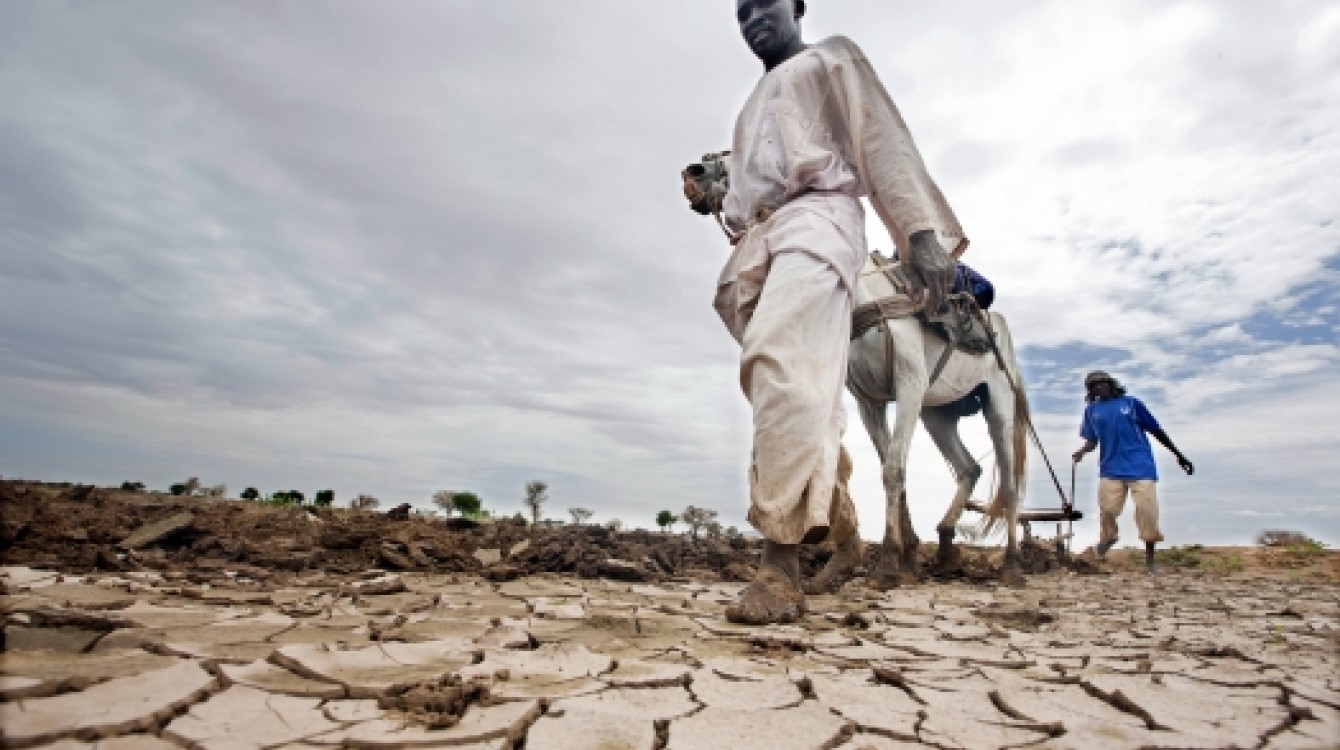As global temperatures continue to rise, Africa, though responsible for less than 10% of global greenhouse gas emissions, is disproportionately bearing the brunt of climate change. The continent is facing devastating consequences that threaten its ecosystems, food security, water supplies, and livelihoods. From rising temperatures to erratic precipitation patterns, extreme weather events are becoming more frequent, with far-reaching socio-economic implications.
The signs of Africa’s climate crisis are visible across the continent. Prolonged heatwaves, severe droughts, and increased flooding are taking their toll on communities already grappling with economic challenges. In an interview with climate change expert Dr. Michael Otieno, an environmental expert at the University of Nairobi, he paints a grim picture of the present reality: “The temperature increases in some parts of Africa have been twice the global average. We are seeing more frequent droughts in regions like the Sahel, and flash floods that erode the soil and disrupt farming. The human cost is staggering.”
One of the hardest-hit regions is the Sahel, the semi-arid zone south of the Sahara Desert. The area is experiencing both prolonged droughts and intense rainfall, which has led to flash floods, leaving farms devastated and families in desperate need. Dr. Otieno emphasized the paradoxical nature of the problem: “In the same season, we see long dry spells followed by destructive floods, and neither of them helps the farmers. Crops are destroyed, and people are left with nothing.”
Similarly, Southern Africa has been hit with extreme weather. Namibia’s ongoing severe drought prompted the government to kill over 700 wild animals to provide food for its people. As the drought continues to strain the region’s resources, the challenge of ensuring food security grows more critical. Sarah Masire, a climate activist and researcher from Botswana, explains: “We are reaching the point where human lives and wildlife are at risk. Our agricultural systems are fragile, and drought conditions like this are making it nearly impossible to sustain food production.”
In Northern Nigeria, increased rainfall is causing havoc in rural communities. Flooding has become a recurrent event, destroying homes and farmlands, forcing thousands of people to evacuate. The aftermath of these floods has been the rise of waterborne diseases, affecting public health systems already stretched thin. In an interview with Dr. Musa Ibrahim, a Nigerian agricultural expert, he voiced his concern over the impact on food security: “When these floods happen, they wipe out crops that have taken months to grow. Farmers lose their livelihoods in an instant, and communities lose access to local food sources.”
The projections for the future are equally dire. According to the Intergovernmental Panel on Climate Change (IPCC), average temperatures across Africa are expected to increase further by the end of the 21st century, leading to more severe droughts and heatwaves. This is compounded by the predicted decline in river flow and groundwater recharge rates, particularly in North and Southern Africa, where water scarcity is expected to intensify.
The impact on agriculture, which employs a large portion of the continent’s population, will be severe. Staple crops such as maize, sorghum, and millet are predicted to experience reduced yields, threatening food security and pushing African countries to rely more on food imports, which will strain their economies further. As Dr. Ibrahim lamented: “We’re looking at a situation where many smallholder farmers might be forced out of business. These farmers feed their families and supply local markets. If they can’t grow, the entire food system could collapse.”
The coastal regions of Africa are also facing a looming threat. Cities like Lagos in Nigeria and Alexandria in Egypt are at high risk of coastal erosion and flooding due to rising sea levels. Mangrove ecosystems, which play a vital role in protecting coastal communities from storm surges and provide essential fisheries, are being degraded. António Guterres, the UN Secretary-General, has highlighted this vulnerability, calling for immediate action to protect these vital areas. “Coastal cities are at great risk. Rising sea levels will not only displace millions of people but will also destroy ecosystems crucial for sustaining livelihoods,” Guterres said at a recent climate summit.
Biodiversity loss is another significant consequence of climate change in Africa. Unique ecosystems such as the Congo Basin rainforests and the savannas could be drastically altered. Species that cannot adapt to these rapidly changing conditions are facing extinction, disrupting ecological balances and threatening communities that depend on natural resources for their livelihoods. Charlie Nkuna, a conservationist in South Africa, stressed the urgency of the situation: “We are witnessing the collapse of ecosystems that have existed for millennia. Wildlife, forests, and even human communities are at risk of disappearing if we do not take strong action now.”
Despite the overwhelming challenges, there is a consensus among experts and stakeholders that there is still hope. Sustainable agriculture, resilient infrastructure, and regional cooperation are seen as key strategies to mitigate the impacts of climate change on Africa. Dr. Otieno believes in the potential of local communities to adapt and innovate: “Africa has always been a resilient continent. We can turn the tide on climate change by investing in climate-smart agricultural techniques, restoring degraded lands, and empowering our people with the tools they need to cope with these challenges.”
However, for this vision to become a reality, African countries will require significant financial and technical support from the international community. Petteri Taalas, A former Secretary-General of the World Meteorological Organization, underscored the need for global cooperation: “Africa cannot cope with these challenges alone. We need to ensure that the continent gets the necessary resources to build climate resilience.”
As Africa continues to face the onslaught of climate change, the time for action is now. The effects are already being felt, and without immediate interventions, the future looks increasingly precarious for millions across the continent.




